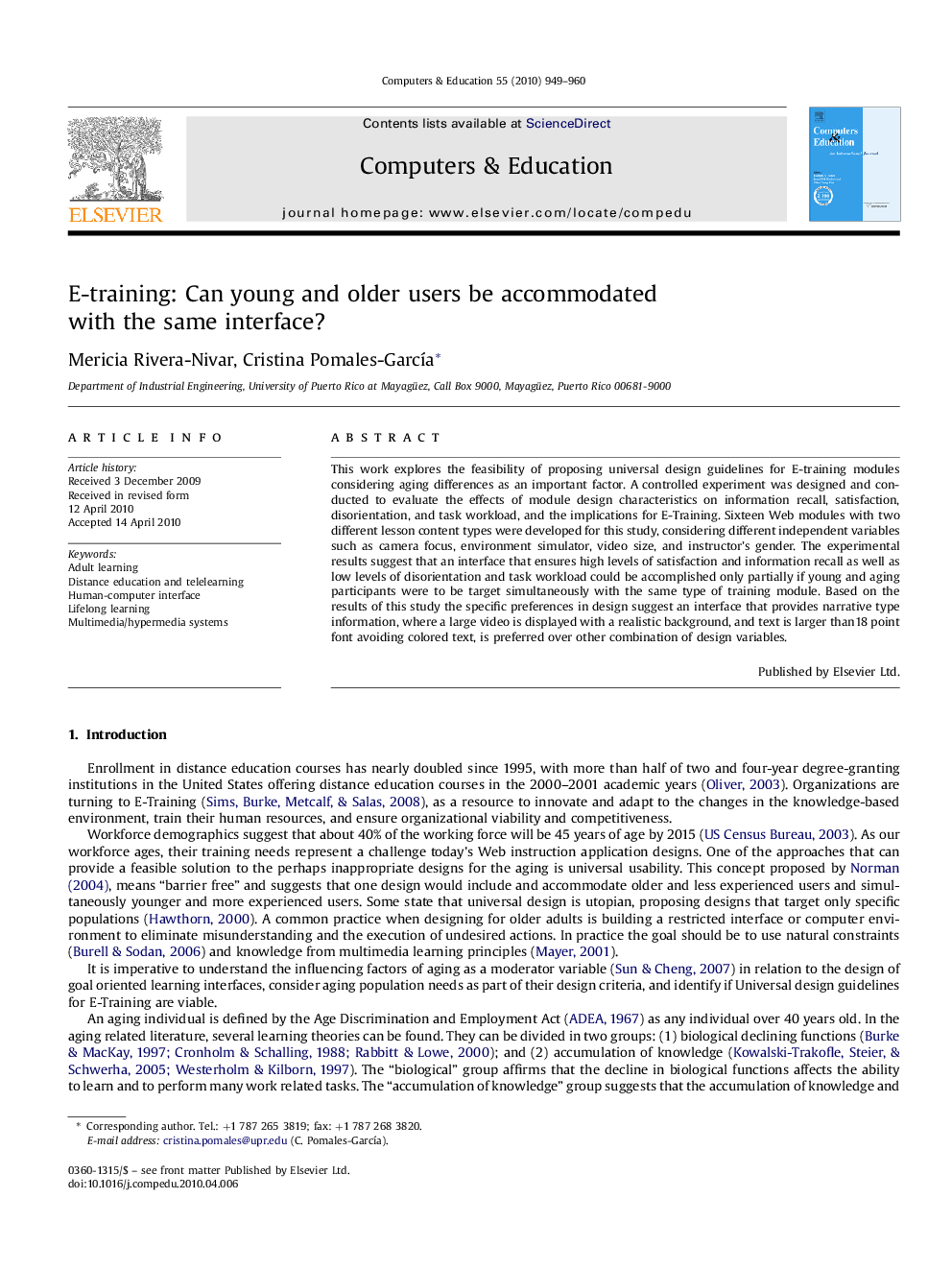| Article ID | Journal | Published Year | Pages | File Type |
|---|---|---|---|---|
| 349241 | Computers & Education | 2010 | 12 Pages |
This work explores the feasibility of proposing universal design guidelines for E-training modules considering aging differences as an important factor. A controlled experiment was designed and conducted to evaluate the effects of module design characteristics on information recall, satisfaction, disorientation, and task workload, and the implications for E-Training. Sixteen Web modules with two different lesson content types were developed for this study, considering different independent variables such as camera focus, environment simulator, video size, and instructor’s gender. The experimental results suggest that an interface that ensures high levels of satisfaction and information recall as well as low levels of disorientation and task workload could be accomplished only partially if young and aging participants were to be target simultaneously with the same type of training module. Based on the results of this study the specific preferences in design suggest an interface that provides narrative type information, where a large video is displayed with a realistic background, and text is larger than18 point font avoiding colored text, is preferred over other combination of design variables.
